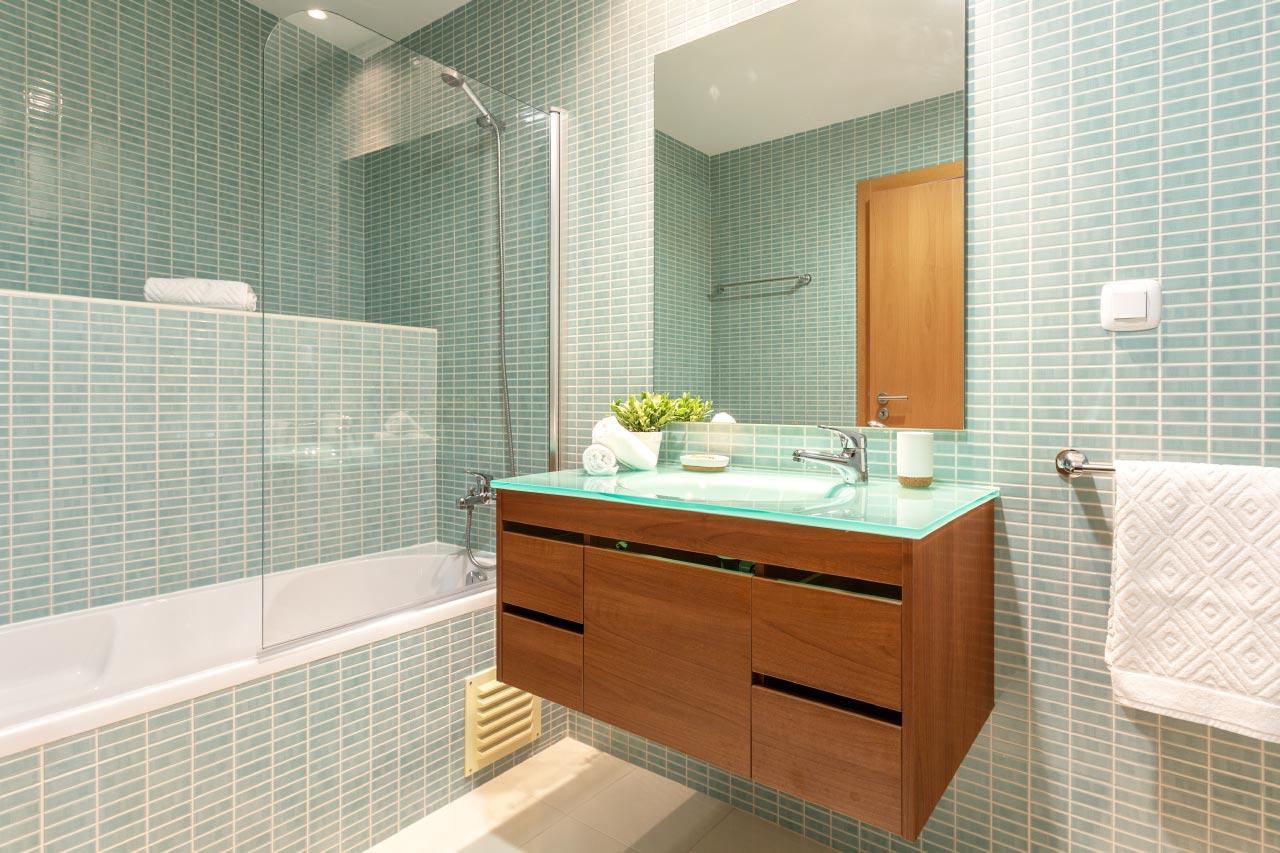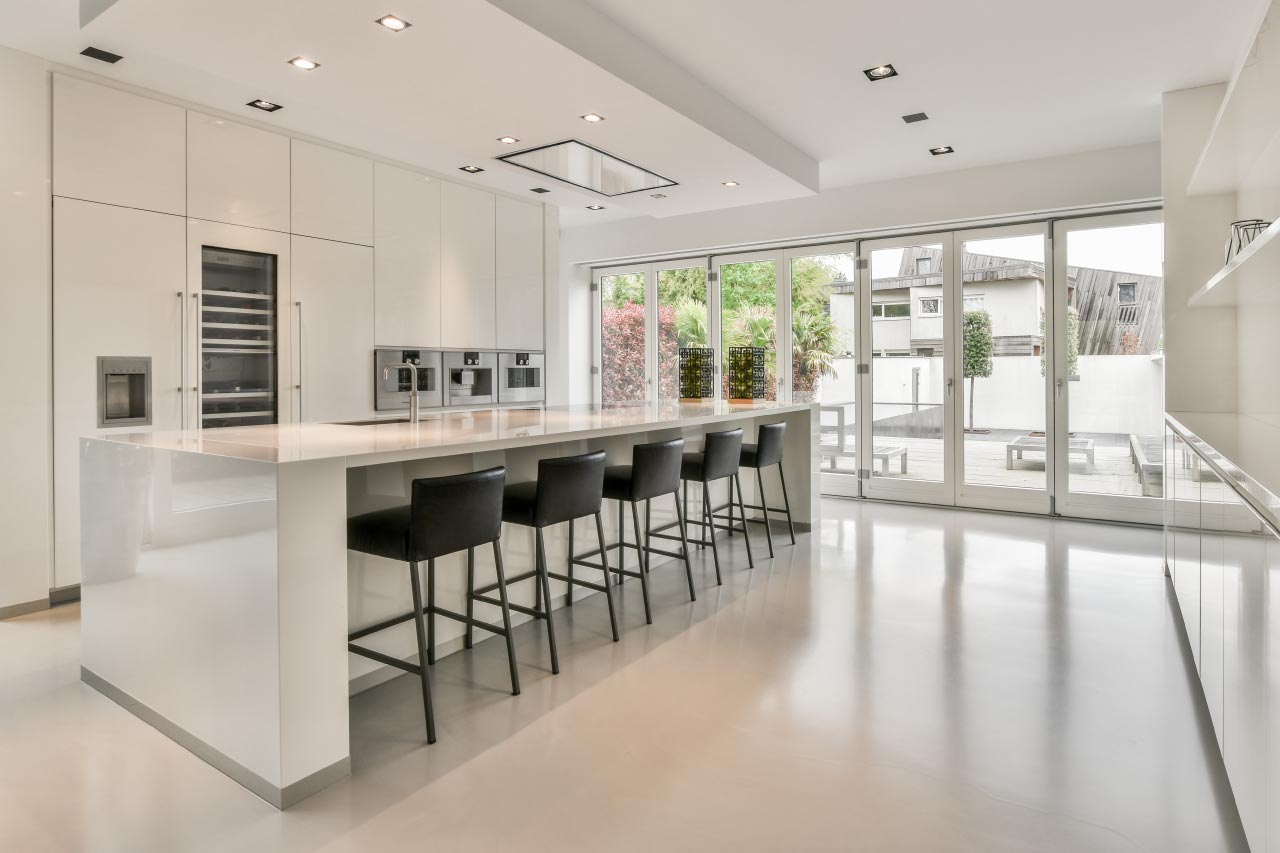
Budget for your limestone flooring project by exploring how material prices, labor rates, and project size affect your total costs.
Tiling a shower costs an average of $2,700


The average cost of tiling a shower runs between $1,800 and $5,000, with an average price of $2,700.
Costs vary depending on tile choice, design complexity, and labor.
Complex designs, waterproofing, and regrouting call for professional expertise to ensure a durable, watertight finish.
Popular shower tile materials include ceramic, slate, porcelain, vinyl, and glass.
The project enhances bathroom aesthetics, increases durability, and prevents moisture seepage.
This article was updated using automation technology and thoroughly reviewed for accuracy by HomeAdvisor Editor Ryan Noonan.
On average, the cost of tiling a shower ranges from$1,800 to $5,000, with most projects averaging $2,700. Materials cost $10 to $25 per square foot, depending on style and quality. Proper budgeting can help you choose the best options, and hiring a pro ensures a reliable, watertight installation.
How much you spend on installing shower tile depends on a variety of factors. The following breakdown shows where most of your budget goes.
Material selection drives most of the budget. Below are common shower tile options and their average installed costs.
| Tile Type | Average Cost per Sq. Ft. (All-In) |
|---|---|
| Ceramic | $10–$25 |
| Slate | $15–$20 |
| Porcelain | $15–$50 |
| Marble | $20–$65 |
| Limestone | $25–$60 |
| Granite | $10–$65 |
| Terracotta | $10–$30 |
| Glass | $35–$60 |
| Pebble | $40–$70 |
| Quarry pavers | $15–$40 |
Customized tile designs enhance your bathroom but can increase costs due to additional labor and material waste—up to 20% waste for diagonal cuts like herringbone patterns. Here are popular designs and their labor costs:
| Tile Pattern | Labor Cost per Sq. Ft. |
|---|---|
| Herringbone (diagonal) | $14.50–$16.50 |
| Staggered brick | $5–$10 |
| Subway tile | $7–$15 |
| Pinwheel | $20 |
| Natural stone design | $10+ |
These designs often cost more than basic ceramic tiles, potentially exceeding the average $25 per square foot to tile a new shower.
Adding tile sealant to seal frayed edges around older tiles can save you money. The cost to repair tile starts at $280, while the cost to regrout a shower starts at $560. Broken tile can result in moisture seepage beneath the surface, so it's a good investment of your time and money to fix either.
Installation involves more than simply removing old tiles and setting new ones. Depending on the project, steps to waterproof the subfloor and regrouting—which improves the aesthetic of your tiles and protects them from damage—could be warranted.
Removing old tile before retiling costs between $1.50 and $4.50 per square foot. While you can DIY to save money, you risk damaging your shower or flooring. Hiring a local bathroom tile repair specialist ensures the job is done safely.
Labor costs for tiling a shower range from $10 to $15 per square foot. Factors like project size, design complexity, and local labor rates affect the total cost. Complex patterns require more time and can increase labor expenses. Gathering several quotes from local tile professionals helps ensure competitive pricing and the right skill set for your project.
Buying supplies such as adhesive or grout on your own can cut costs, but you’ll also need specialized tools like a tile cutter, spacers, and a level. Hiring a professional tiler means they bring all the necessary tools to complete the job efficiently.
Tiles may vary in price by their finish as well. Popular finishes include:
| Tile Finish | Material Cost per Sq. Ft. | Installation Cost per Sq. Ft. |
|---|---|---|
| Glossy | $1.25–$50 | $4.25–$65 |
| Matte | $5–$50 | $10–$65 |
| Metallic | $20–$50 | $25–$65 |
| Rustic | $5–$100 | $15–$110 |
Tiles with added grip—such as those in a matte or rustic finish—often cost more than glossy options, which can become slippery when wet. Consider which finish may be the best (both for safety and aesthetics) for your shower floor.
Consider these cost-saving strategies to make your shower tile installation project more budget-friendly:
Choose a basic design rather than opting for complex installation patterns that drive labor costs up.
Get at least three detailed quotes from local bathroom tile installers to ensure competitive pricing.
Install a single-piece shower base (often called a "pan") to limit tile work to the walls and lower labor costs.
No place is more important than your home, which is why HomeAdvisor connects homeowners with local pros to transform their houses into homes they love. To help homeowners prepare for their next project, HomeAdvisor provides readers with accurate cost data and follows strict editorial guidelines. After a project is complete, we survey real customers about the costs to develop the pricing data you see, so you can make the best decisions for you and your home. We pair this data with research from reputable sources, including the U.S. Bureau of Labor Statistics, academic journals, market studies, and interviews with industry experts—all to ensure our prices reflect real-world projects.
From average costs to expert advice, get all the answers you need to get your job done.

Budget for your limestone flooring project by exploring how material prices, labor rates, and project size affect your total costs.

HomeAdvisor’s Price of Tiles Cost Guide covers the average cost of tiles for floors and walls. Find tile prices right for your project.

How much does it cost to install subway tiles for a kitchen backsplash or bathroom and shower wall? Learn average tile and installation prices here.

Using HomeAdvisors cost guide, youll learn how quartz flooring costs vary depending on labor costs and whether you need an old floor removed.

HomeAdvisor’s LVT Flooring Cost Guide covers the pricing for luxury vinyl tile and plank flooring and installation factors. Find the style for your budget inside.

If you're considering installing ceramic countertops in your home, it's a good idea to know the cost of doing so. Learn how much ceramic countertops can run you and what factors will impact the total price of your project.